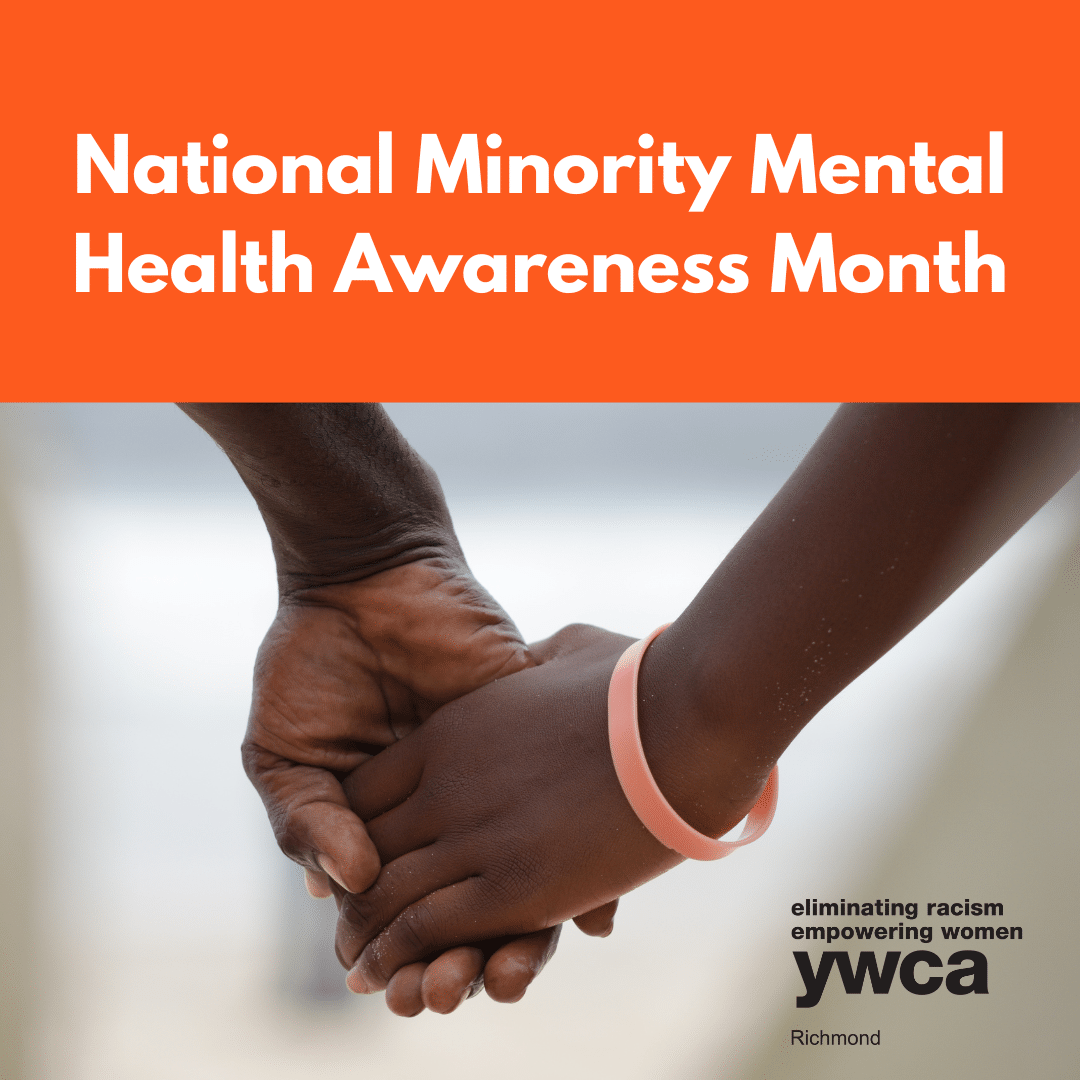Joy * Fear * Accessibility * Similarities and Differences: When speaking with our team of domestic and sexual violence clinicians, these themes and words emerged as they discussed the complexity of mental health for BIPOC and LGBTQ+ survivors.
Our bodies carry the trauma that we experience with us. Historical trauma, disproportionate poverty levels, violence, systemic racism, and discrimination place BIPOC and LGBTQ+ communities at greater risk of experiencing trauma and developing related mental health concerns. July is National Minority Mental Health Awareness Month, which is dedicated to raising awareness of how mental health and access to care are deeply intertwined with injustice and the environments around us. This topic is one that our team of clinicians think about, grapple with, and live every day.
Below is a conversation with our clinical team, which highlights their perspectives, and what healing and community care means to them.
Q: What do you and your team discuss or unpack as it relates to minority mental health, generational trauma, and its intersection with domestic and/or sexual violence?
Clinical Team Answer:
A major theme as it relates to minority mental health in our staff meetings, supervisions, and group supervisions is the impact of the judicial system on survivors. For some survivors, not wanting to call the police is not just about the unfortunate lack of trust in the police as it relates to being a citizen, but also as it relates to being Black and Brown. This call can bring up fears related to police brutality or the impact of being undocumented for the survivor and for the perpetrator. Protective orders can show documentation of violence in the legal sense. However, some survivors will choose not to due to the perception of loyalty within the community as a whole.
The first call to the hotline or attending a session is the survivor addressing generational trauma because many survivors that connect to services it is their first time in counseling. In sessions, we can hear how their progress is being modeled with their children. This progress includes regulating emotions, identifying and establishing boundaries, and not dealing with issues in solitude. By adding children’s counseling, it has created an opportunity for parents and children to prioritize mental health after experiencing and/or witnessing traumatic events. This has helped minority parents and children identify strong emotions of self and others, and addressing how to deal with those emotions in a way that is healthy for the individual and the family system as a whole.
Q: What about the intersection between minority mental health and you as clinicians and people?
Clinical Team Answer:
A major intersection is the constant work in being able to be aware of our own identities as we work with the minority community. Supervision and consultation are helpful in addressing biases and assumptions that can impact providing services. Meeting survivors where they are (which includes all identities, all strengths, all challenges). As clinicians, we attempt to create a space for those differences to be honored and to consider how much they do and do not impact the work with the client. Also, as much as we are considering survivor’s differences it’s so important to also consider similarities. This holds true as a clinician and as humans. We attempt to discuss and process with ourselves fears as it relates to not being able to connect with clients and sometimes connecting too much.
Q: What does community care and/or healing mean to you as it relates to minority mental health?
Clinical Team Answer:
Community care and/or healing means being accessible. It shows that the community cares about BIPOC and LGBTQ+ people and their mental health/well-being. Addressing mental health is not only about direct services but it’s also addressing systemic issues such as food, housing, and employment. This is especially true for BIPOC and LGBTQ+ communities. It’s also important for healing to incorporate joy. Joy means being able to access and create healthy strong consistent safe communities, events, and gatherings.
Q: If you were to talk to a stranger about this topic, what is something you’d want them to take away or advocate for? That advocacy could be political, workplace, community, social – really anywhere.
Clinical Team Answer:
Mental health encompasses a wide range of topics, issues, needs, and advocacy. A persistent, consistent, and gravely concerning issue is housing. Advocating for adequate housing options and fair housing for BIPOC and LGBTQ+ communities can help with meeting the most basic of human needs. If someone is stressed due to being unhoused or inconsistently housed it will be difficult to address the stress and generational trauma that in large amounts is caused by systemic issues. Mental health is influenced by community conditions. For example, in a large amount of minority communities there are an abundance of Dollar General’s and Family Dollar’s instead of grocery stores in proximity for access to fruits, vegetables, and proteins. Also, there are a large amount of vape and cigar shops that provide opportunities to relieve stress in addictive ways. These all connect to mental health as it relates to access. Advocating for equitable resources and access also is a way to advocate for BIPOC and LGBTQ+ mental health.
If you or someone you know needs access to mental health services, emergency housing, and/or case management due to domestic and/or sexual violence, text or call the 24/7 regional hotline at 804-612-6126.
National Minority Mental Health Awareness Month

